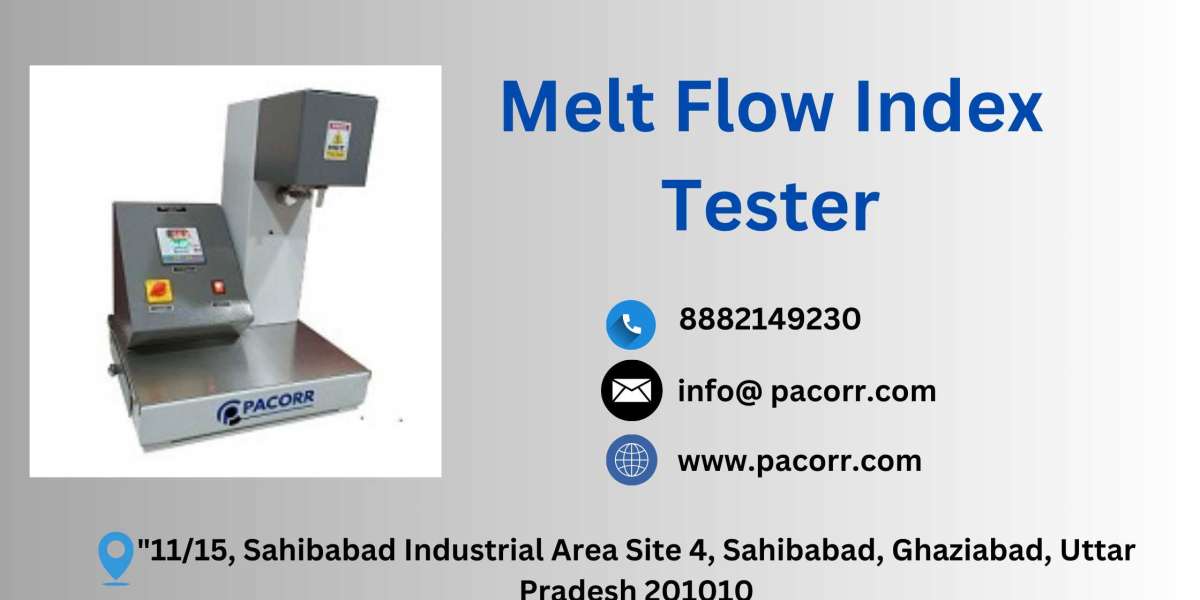Comprehensive Guide to the Melt Flow Index Tester
Introduction
In the dynamic world of polymer testing, understanding the flow properties of plastic materials is crucial. The Melt Flow Index (MFI) Tester is a vital instrument used in this domain. This article delves into the significance, functioning, and applications of the Melt Flow Index Tester, highlighting its indispensable role in ensuring the quality and performance of polymer products.
What is a Melt Flow Index Tester?
The Melt Flow Index Tester Price is a device designed to measure the melt flow rate of thermoplastic polymers. The melt flow rate (MFR) is a critical parameter indicating the ease of flow of the melted material under specified conditions of temperature and pressure. This measurement is essential for manufacturers to determine the suitability of a polymer for various processing methods, such as injection molding, extrusion, and blow molding.
Importance of Melt Flow Index Testing
- Quality Control: The MFI test is a standard quality control measure in the polymer industry. It ensures that the material meets the required specifications and performs consistently during processing.
- Material Selection: By understanding the melt flow properties, manufacturers can select the appropriate material for specific applications, ensuring optimal performance and product quality.
- Process Optimization: The MFI data helps in optimizing the processing conditions, reducing waste, and improving efficiency in manufacturing processes.
How Does a Melt Flow Index Tester Work?
The Melt Flow Index Tester operates by extruding a polymer sample through a standardized die under controlled temperature and pressure. The key steps involved are:
- Sample Preparation: A specific amount of polymer is loaded into the heated barrel of the tester.
- Heating: The barrel is heated to a specified temperature to melt the polymer.
- Extrusion: A piston applies a standard load to the molten polymer, forcing it through a die.
- Measurement: The extrudate is collected over a fixed period, and its mass is measured. The melt flow rate is calculated as the mass of the polymer extruded per unit time.
Applications of Melt Flow Index Tester
- Material Development: Researchers and material scientists use MFI testing to develop new polymer grades with desired flow properties.
- Quality Assurance: Manufacturers utilize MFI data to ensure batch-to-batch consistency of polymer materials.
- Regulatory Compliance: MFI testing is often required to meet industry standards and regulatory requirements for polymer products.
Features of Pacorr's Melt Flow Index Tester
Pacorr’s Melt Flow Index Tester stands out due to its precision, reliability, and user-friendly design. Key features include:
- Advanced Temperature Control: Ensures accurate and stable temperature conditions for precise testing.
- Robust Construction: Built with high-quality materials for durability and long-term performance.
- Ease of Use: Intuitive interface and easy-to-follow procedures make it accessible for operators of all skill levels.
- Comprehensive Data Analysis: Provides detailed reports and analysis for better understanding and interpretation of test results.
Conclusion
The Melt Flow Index Tester Price is an essential tool in the polymer industry, offering valuable insights into the flow properties of thermoplastic materials. By ensuring quality control, aiding in material selection, and optimizing processing conditions, the MFI Tester plays a pivotal role in the production of high-quality polymer products. Pacorr’s advanced MFI Tester, with its precision and reliability, is the ideal choice for manufacturers and researchers aiming to achieve excellence in polymer testing.



